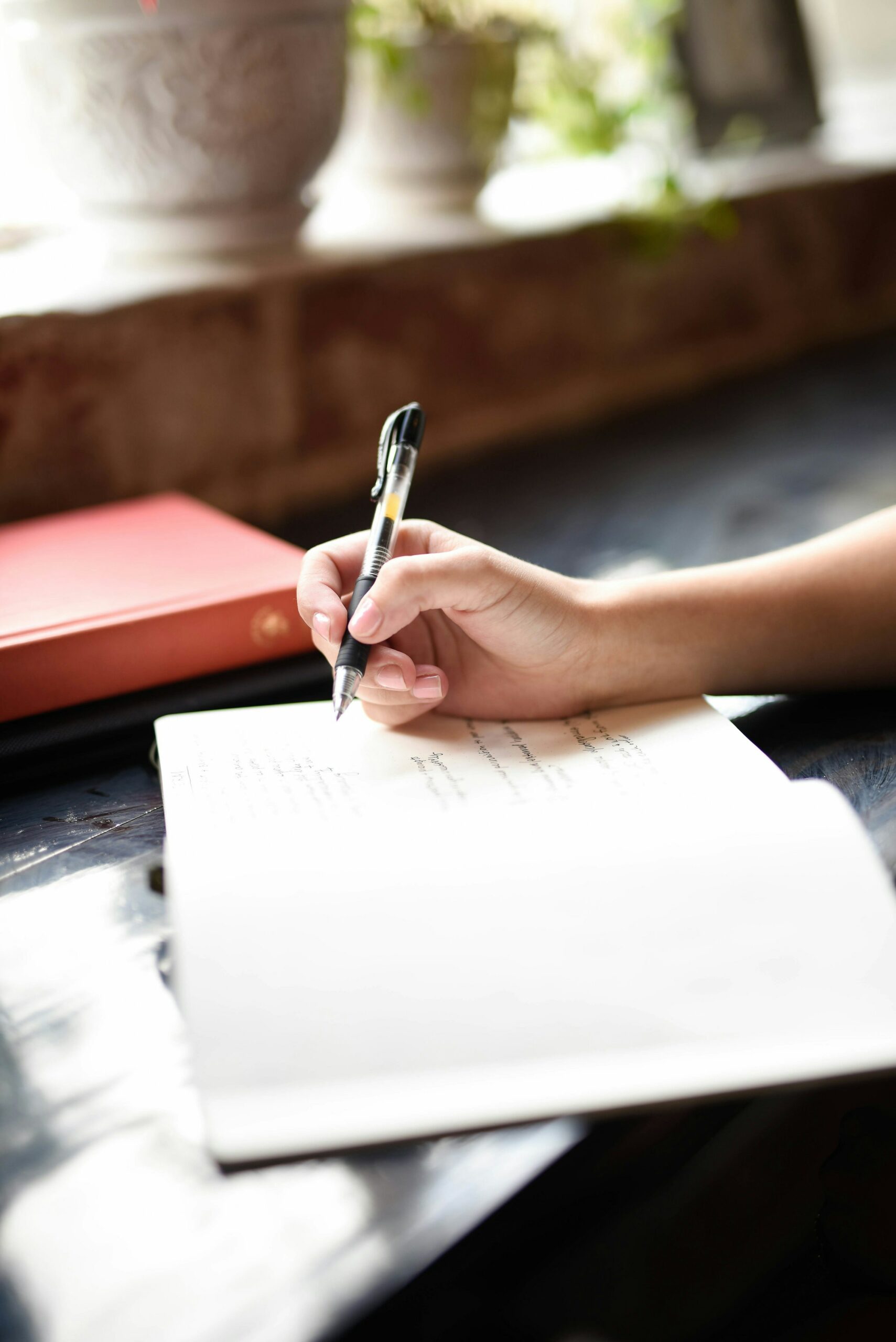Image Credits: Journaling over Coffee via Hannah Olinger (Unsplash)
Forgetfulness is one of the greatest misfortunes we are routinely troubled by. From forgetting how to spell “restaurant” to forgetting whether or not you turned off the stove while you’re boarding your flight, there exists a wide spectrum of possible issues we don’t adequately deal with, ranging from the most trivial to the most consequential.
In moments where we fail to regulate our emotions and be the best versions of ourselves, forgetfulness is the primary culprit. The problem is not a lack of knowledge about how to emotionally respond to an agitating situation – it’s simply a lack of remembering what kind of response you want to issue when you are provoked. We know exactly how we should react to most situations we are in, but we forget to put that knowledge into practice. What good is all the time we spend listening to advice from others, reading self-help books or attending personal growth events if we can’t use that information when we need it? We could possess all the knowledge in the world, but if we fail to use it when necessary, we are no better than if we were completely ignorant.
Consider the following example: we are very susceptible to being angry when someone transgresses one of the most sacred rules of social etiquette — cutting in line. The mere act of someone disrespecting us by budging in line while we waited several minutes promptly engenders feelings of immense indignation. We may even wish terrible suffering upon this person. An external variable such as this random individual, especially when they are guilty of something so trivial, should not disturb our mood so effortlessly. We might look back on this moment with shame and regret because of how immature we were, and we will wish we responded differently.
Unfortunately, this type of response is very common. Whether it’s someone cutting in line, talking too much, being late, getting a flat tire, losing our phone or getting an undesirable grade in a course, we needlessly stress out over things that happened in an unalterable past. When we sober up from this emotional intoxication, we realize how embarrassing, immature and harmful our reaction was. We must be more resilient than this if we are going to endure and triumph over the myriad adversities that inevitably await us. We accumulate so much wisdom throughout our lives, yet we fail to administer this wisdom in the moment it is most necessary.
This is where the importance of journaling and mindfulness meditation come in. Journaling is a form of self-talk. You can criticize yourself, talk about your values or plan your day. It’s an important practice that serves as an outlet to express ourselves in private. Meditation is a deliberate effort to be present and aware of the current moment. We often live life robotically, failing to pay attention to what is going on around us and inside us. Mindfulness is a practice that allows us to pay attention to ourselves and the world we inhabit.
Journaling: by writing what you did wrong, right, brainstorming ways to improve and tracking all the wisdom you learned throughout the day, you are becoming your own teacher. You must continuously remind yourself of these things. It’s not enough to hear a wise lesson once. As you constantly remind yourself to be more compassionate to yourself and others, humble and self-restrained, bit by bit these values become our default as they supplant our impulsive negative reactions.
Mindfulness meditation is the practice of focusing on the present moment. This is an important state of mind because it allows you to be consciously aware of your mood and your environment. By being aware of your thoughts and emotions, you allow yourself to be in control of how you react to your environment. We are very susceptible to negative emotions when we live life subconsciously, because negative reactions seem to be the default in most of us — because we haven’t yet trained ourselves to automatically respond positively. Once we increase our awareness of the present moment, we can restrain our negative reactions and remind ourselves of how we truly want to react; mindfulness also allows us to savor the present moment. Of course, it is very difficult, almost impossible, to live every minute of every day in a present state of mind. It simply requires too much effort. However, you can start off by practicing for a few minutes a day (after or before bed). From there, as you gradually increase the length of your meditation practice, you will become more skilled at being mindful, and it will become like second nature. You will become better at remembering what kind of person you want to be when you are stressed or provoked.
There are many other benefits to journaling and meditation that I did not mention. They are two very simple exercises that have endured throughout history and were crucial to the health and wisdom of some of history’s greatest leaders, such as Abraham Lincoln and Marcus Aurelius. By practicing journaling and meditation, even just moderately for a few minutes a day, you will be better equipped to deal with the hardships you encounter. The same things that bothered you before, such as someone cutting in line, won’t affect you as negatively as they once did. You just have to remind yourself of who you want to be.
Sameh Sharoud is a fourth-year Psychology major with a minor in Biology. SS1015422@wcupa.edu

